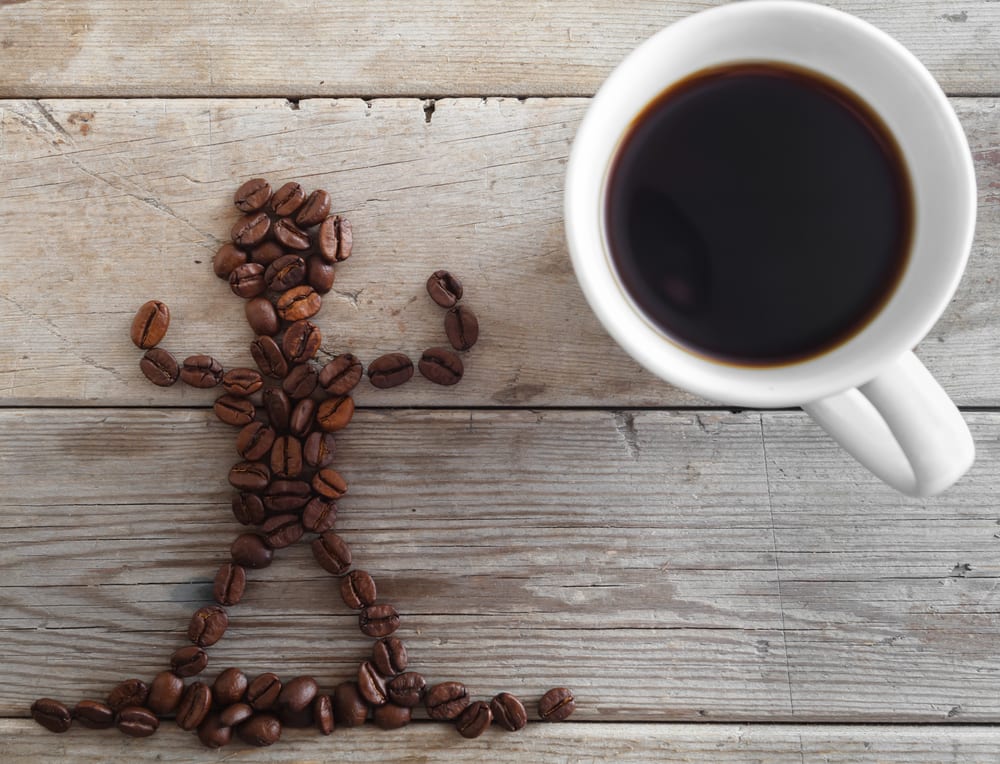Losing some weight at the beginning of your fat-loss journey is one thing – achieving a level of bodyfat that will prime your body to pack on more muscle and less fat is a whole other ballgame.
If you’ve ever been on a diet for more than a few weeks, you know that as you adjust your nutrition and activity levels, staying the course becomes quite the challenge.
The further into our fat-loss phase, the less calories we are consuming and the more physical activity we are performing. This (less calories and more activity) is the perfect recipe for physical and mental fatigue, decreased willpower, agonizing hunger pangs, and ultimately, failing to reach out goal.
It’s why I recommend slow and progressive dieting; using calculated strategies for making calorie and cardio adjustments only when absolutely necessary.
This type of approach allows for consistent fat loss without boycotting carbs or performing more than a couple of HIIT cardio sessions per week.
It’s the same strategy I used to get down to single-digit bodyfat levels – all without spending more than 1 hour per week doing cardio, and still consuming over 200 grams of carbs per day (over 400g on refeed days).
But I am going to assume that you’re already on a solid weight-loss program.
Perhaps you’ve made some progress, but are now experiencing the negative effects of prolonged dieting that I mentioned before.
Fear not…
Today I am going to give you 5 Nutritional Habits for Highly Effective Fat Loss.
Let me say this, though…
No one defies the laws of thermodynamics.
Particularly the first one – Energy Balance.
Energy cannot be created nor destroyed, only altered in form.
What does this mean to you?
Simple.
If you’re not losing weight, you’re eating too much…period.
[Tweet “If you’re not losing weight, you’re eating too much…period.”]
If you can manage to consume less calories than you are expending, you’ll lose weight.
Capiche?
1. Match Your Fridge to Your Goals
I’ll be frank…
If you’re craving chocolate cake while your willpower has been diminished and you’re starving – how likely is it that you skim by the cake, oozing of chocolaty goodness, and grab the apple instead?

Take this study, for example. Researchers had study volunteers complete a questionnaire designed to measure willpower, and then seduced them with some tasty chips. They then asked the volunteers to try their hardest to avoid eating them (the chips, not the researchers). The idea was to see if the volunteers who’d scored higher in self-control could resists the chips more easily than those who scored lower. When it was all said and done, self-control didn’t have much of an effect on whether or not the volunteers were able to keep themselves from indulging in the chips.
It’s not because the majority of volunteers were gluttons, but because willpower, as it’s been proven, is limited.
Here’s what Traci Mann, a Ph.D. in psychology from Stratford University, said about imagining that you’re in a meeting and someone plunks a box of doughnuts on the table.
”To resist this doughnut, it’s not a one-time thing. You resist it when you first notice it, and you resist it every time you look up and see it again. I know I’d be tempted every time I looked up!”
And every time we look up, we are draining that lovely, but limited, resource that is willpower.
Want to avoid late night snacking or caving to your craving for brownies? Don’t buy them.
2. Drink Before You Eat
Believe it or not, when you think you’re hungry, you’re actually just thirsty.
In fact, despite how it may seem, we aren’t generally good at identifying whether we are hungry or just in need of some water.
This is because most of us aren’t drinking enough fluids, daily. Our body adapts to the low fluid intake and thus we feel “thirsty” less often.
Although, despite not feeling dehydrated, we do notice the effects (of dehydration) through fatigue, sluggishness, and poor digestion.
Note: Avoid waiting till you’re thirsty before drinking water. By the time you’re thirsty, you’re already a bit dehydrated.
Want to avoid eating for the sake of eating?
Drink an 8oz glass of water when you feel hungry. Wait about 5-10 minutes, and if you’re still hungry, eat. If not, carry on and save those calories for later.
How much water should we drink per day?
Although there is no set-in-stone formula for water intake, there are some pretty simple guidelines. In my opinion, there is one method worth mentioning for the sake of not overthinking it.
2/3 (0.66) x Bodyweight in lbs = Daily Fluid Ounces (34 Fluid Ounces = 1 Liter)
Example: 0.66 x 170 lbs = 113 Fluid Ounces (113/34 = 3.3 Liters per day)
Drinking enough water throughout the day will minimize the likelihood of feeling hungry when you’re just thirsty.
If you can break your water intake up into a couple of glasses per meal, even better. This has been shown to increase satiety while eating – making it less likely that you’ll overeat.
3. 1 Serving of Veggies with Every Meal
An entire cup of steamed broccoli contains a mere 6g of carbs while a single Oreo cookie contains more than double that amount (15g).
While an entire cup of vegetables is more than enough to keep you full and satisfied, it’s not likely that 1 Oreo will do that same.
My point is this; eating 500kcal worth of veggies is far less likely than getting the same amount from a box of cookies.
Not to mention, due to a high fiber content, vegetables are not only healthy, but extremely satiating.
If you want to avoid testing your willpower due to food cravings (caused by hunger), add 1 cup of veggies to each meal.
Not only will this limit the amount of fats and carbs we can fit on our plate – but the sheer volume will aid in keeping you full, for a long period of time.
4. Increase Protein Intake
Protein is the most satiating macronutrient of the three and has been shown to decrease appetite dramatically.
This is due to how slowly proteins are digested.
Similar to vegetables, it’s going to be much more difficult for you to get 500 calories from chicken breasts than it would from a bag of chips.

Chances are you skipped dessert, am I right?
How much protein?
It’s no secret that, if we are overfeeding in order to build muscle mass, no more than 0.8-1g per pound of bodyweight in protein is necessary.
However, when we are in a caloric deficit for a prolonged period of time, a higher protein intake is superior.
This is why I recommend 1.2g per pound of bodyweight in protein for anyone who is restricting calories.
1.2 x 170lbs = 204g of protein per day
Not only will preserving your muscle mass help you stay lean once you get there, but following a high-protein diet will also help reduce appetite – making it much easier to stick to your diet.
5. Skip Breakfast and Drink Coffee Instead
Let’s say, for example, that you wake up at 8am each morning and are in bed by 9pm.
Now let’s assume that you’re like most people in that you eat breakfast soon after waking.
This gives you, roughly, 13 hours in which you can fit meals.
Reducing that eating window will, almost effortlessly, decrease the amount of meals you can fit into your day.
So let’s say that you’re on low calories – 2000kcal to be exact. Do you think it would be easier to stay within that limit if you had 3 meals as opposed to 4-5?
Of course!
This is why I would recommend pushing breakfast back as far as possible. (Read This: How to Get Ripped Forever: Intermittent Fasting)
If we can push our breakfast from 8am to 1pm, we are reducing our eating window by 5 hours, giving us just 8 hours in which we are consuming calories.
Read this: One Easy Meal Fat Loss
Not only does this free up calories and allow us to be a bit more flexible with our food choices, but it reduces the likelihood that we go to bed hungry.
But I am hungry in the morning!
Drink coffee!
Although it may not be the caffeine alone (as most once believed), caffeinated coffee is proving to be a powerful appetite suppressant.
Other benefits of coffee:
• Improved Strength
• Improved Focus
• More Muscle Endurance
• Better Anaerobic Performance
• And Faster Fat Loss
How exactly does coffee increase fat loss?
It speeds up your body’s metabolic rate by increasing the amount of catecholamines in the blood, which mobilize fat stores to be burned for energy.
Simple as that!
In Closing
Fat loss is simple, but it’s not easy.
Knowing that you have to consume less energy than you expend is not enough to overcome the battles that come from low energy intake and high energy output.
This is why it is critical that, if you want to succeed in your fat-loss journey, you take a strategic approach.
And by strategic, I don’t mean “eating clean” and performing endless cardio.
I am talking about progressively decreasing your energy intake as your metabolism adapts, without cutting too many calories, too quickly, or frequently increasing your physical activity.
This will give you the best shot at dieting down on the highest number of calories with the least amount of cardio possible.
If you can implement these 5 little-known strategies, habitually, throughout your diet, you’ll be in for an enjoyable fat loss experience.
About The Author
 Alain Gonzalez is a former skinny guy turned jacked fitness pro whose transformation story has been featured in articles on websites all over the internet. He has dedicated his life to helping naturally skinny guys like himself to overcome their genetics and take their physiques to the next level.
Alain Gonzalez is a former skinny guy turned jacked fitness pro whose transformation story has been featured in articles on websites all over the internet. He has dedicated his life to helping naturally skinny guys like himself to overcome their genetics and take their physiques to the next level.
Alain Gonzalez
Fitness Author
Strength Coach
Certified Personal Trainer
Founder, www.MuscleMonsters.com







